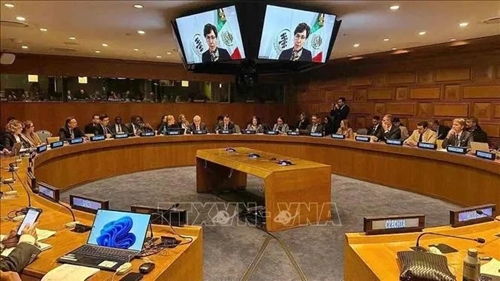November 16, 2024 | 10:18 (GMT+7)
Vietnam willing to enhance int'l cooperation in transnational crime combat
Ambassador Dang Hoang Giang, Vietnam’s Permanent Representative to the United Nations (U.N.), has affirmed that Vietnam and ASEAN are ready to collaborate with all partners in preventing and combating transnational organised crimes to ensure a safe and healthy environment for all.
Giang made the statement on November 14 at a high-level event organised by the U.N. Office on Drugs and Crime (UNODC) on the occasion of the International Day for Prevention and Fighting All Forms of Transnational Organised Crime (November 15).
    |
 |
|
An overview of the high-level event organised by the UNODC on the occasion of the International Day for Prevention and Fighting All Forms of Transnational Organised Crime (November 15) |
Most participants voiced concerns about the severe threats transnational organised crimes pose to global peace, security, and sustainable development, highlighting their detrimental impacts on social stability and cohesion in numerous countries, requiring enhanced international and regional cooperation in the response work.
In Southeast Asia, Giang said, the most severe challenges lie with drug and human trafficking, and cybercrime. He noted that international cooperation plays an essential role in supporting national efforts to address these urgent issues. He also highlighted the efforts and achievements of the Association of Southeast Asian Nations (ASEAN) in combating transnational crimes.
On this occasion, the diplomat shared recommendations to promote regional initiatives in this field, including building capacity and providing training for law enforcement forces, supporting technology and infrastructure to help ASEAN countries monitor and respond effectively to increasingly sophisticated criminal networks, harmonising laws within the region to facilitate cooperation and coordination, raising public awareness of various types of crimes, and engaging communities in prevention efforts.
In March, the U.N. General Assembly designated November 15 as the International Day for Prevention and Combating All Forms of Transnational Organised Crime, aiming to raise awareness of the threats posed by transnational organised crimes and to strengthen international cooperation in this critical issue.
Source: VNA